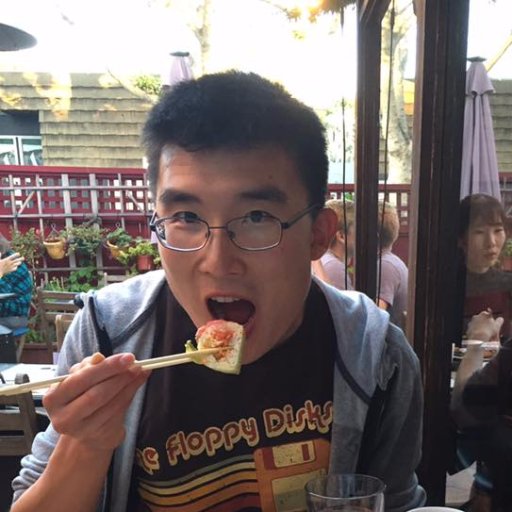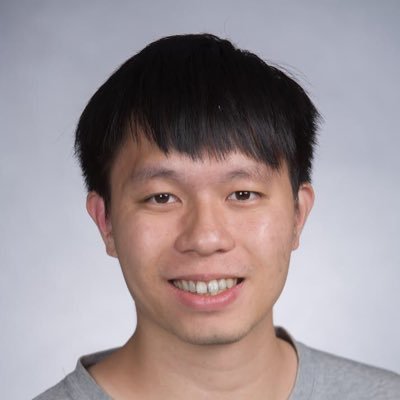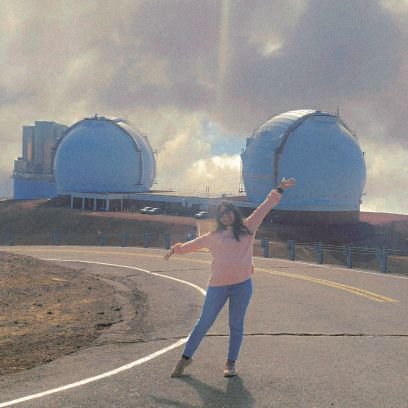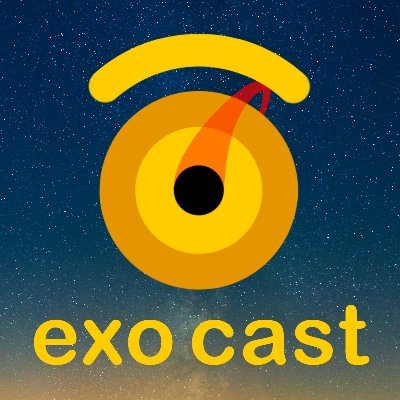
Jason Wang
@semaphore_P
Followers
2K
Following
5K
Media
183
Statuses
1K
Astronomer. I take images of extrasolar planets. Sometimes I make GIFs of them. Professor @NUCIERA and @NUPhysicsAstro
Joined August 2009
The Roman Coronagraph team is soliciting input on what to do with 2200 hours on the highest contrast coronagraph ever flown! There is no open-time program, so fill out this survey on the technology demonstration and science that you'd like to see!
docs.google.com
Context: The Coronagraph Instrument onboard the Nancy Grace Roman Space Telescope (scheduled to launch no later than May 2027) will enable an in-space technology demonstration of a high-contrast...
0
4
8
Northwestern press and Nature Astronomy research highlights nicely summarize our new paper on a baby planet’s atmosphere https://t.co/eHkfQLt5SJ
news.northwestern.edu
New study shows planet formation might be more complicated than previously thought
1
1
7
So excited to share this news!
Northwestern has joined the Giant Magellan Telescope's international consortium 🔭 Launching in the 2030s, @giantmagellan will be the world’s most powerful optical telescope—exploring the distant universe, including the search for Earth-like planets. https://t.co/VG3CCKlQLZ
0
0
21
Check out our new paper where we make the first C/O measurements of a protoplanet and compare it to the disk C/O!
I am excited to share my third paper of this year, and my first exoplanet paper with @semaphore_P , accepted to ApJL. We detected CO and water in the atmosphere of PDS 70 b using Keck/KPIC. PDS 70 b shows a stellar-like C/O ratio (!). Paper here:
0
3
25
I had the opportunity to make a pilgrimage to the Observatoire de Haute-Provence and see both the telescope and the spectrograph that discovered 51 Peg b. Super cool and awesome that the telescope is still detecting new exoplanets!
0
4
116
Calling all early Universe observers applying for postdocs: consider applying for the Brinson Prize Fellowship with @NUCIERA as your host institution! We have a great extragalactic group 🌌 and plenty of access to big glass! 🔭 Feel free to get in touch if you have any questions
A collaboration between The Brinson Foundation and @stsci, the Brinson Prize Fellowship program offers postdoctoral awards in observational cosmology. We are proud to return as one of eleven host institutions. Applications close on Nov 7. https://t.co/z5ENRUX1Wz
0
6
17
I did a podcast with Paul Duffell on imaging exoplanets, and now it's out! I had a lot of fun on it, and Paul was a great host, but he has zero social media presence, so I'm spreading the word. https://t.co/PJXPO8se11
rss.com
For centuries, all that we have known about planets was confined to our own solar system, and its occasionally-changing number of planets (eight as of now). But in the past several decades, astrono...
3
11
56
Looking forward to seeing everyone showcase their new open source packages tomorrow!
The scenery of everyone working and discussing and creating some amazing work on their laptop screens at this meeting of creative minds is a sight to behold. I feel privileged to be a part of this community, first as a student and then as a TA. #CodeAstro at @NUCIERA
0
0
11
I love hearing about open-source science enabled by Code/Astro. Glad you enjoyed the workshop last year, Ridha!
0
0
5
I tell tales of exoplanet imaging and add my "retirement planet" to the exocast list of adopted planets in the podcast below!
🚨🎙️New Episode of Exocast OUT NOW!🎙️🚨 The Exocast Crew sat down to talk to Professor @semaphore_P from @NorthwesternU all about his work on #exoplanet discoveries using direct imaging with the @PlanetImager🪐 https://t.co/GiAlUL73C7 Check us out wherever you get your #podcasts
2
1
17
Northwestern is a host institution this year for the 51 Peg b fellowship! Happy to chat about possible research opportunities and link to other exoplanet/planetary science faculty here.
Northwestern is a new host institution for the Heising-Simons Foundation’s 51 Pegasi b Fellowship! The fellowship funds 3-4 years of research related to any area of planetary science (in our solar system and exoplanetary). Apply from Jul 9 - Oct 4: https://t.co/qdPpqcnVRL
0
7
33
Nice work led by @ChihChunHsu that expands the sample of benchmark brown dwarfs where we can get accurate abundance ratios using high res spectroscopy!
I wanted to advertise the two papers I led in 2024! The first one is HD 33632 Ab with Keck/KPIC, a late-L brown dwarf (~46 Mjup) companion (~20 au). We measured its spin, RV, and abundances, and compared the literature spins at the population level.
1
0
11
The Brothers Sun makes me miss living in the 626. Time to book that flight to LA
0
0
4
Ever wanted to learn software development for astronomy? Come check out Code/Astro! Apps open until Feb 16!
Are you an astronomer or aspiring astronomer wanting to improve your software engineering skills? Applications for Code/Astro 2024 are open! More info at https://t.co/c7N7NypwPr. Application is linked at the bottom of that page. Apply by Feb 16!
1
4
15
Check out the Heising-Simons Foundation (@HSFdn) profile of CIERA Professor Jason Wang (@semaphore_P) and his work on exoplanet imaging and data science education!
0
1
13
New beta pic b orbit movie!
This is Beta Pictoris b—a planet 12 times the mass of Jupiter—sailing around its star in a tilted orbit. Constructed from real data, astrophysicist Jason Wang (@semaphore_P)'s video condenses 17 years of footage, making it the longest time-lapse video of an exoplanet to date.
6
49
204
A Northwestern University astrophysicist has created the longest time-lapse video of an exoplanet to date. “We need another six years of data before we can see one whole orbit,” said Jason Wang, who led the work. “We’re almost there. Patience is key.” https://t.co/9gWWJ5vnaa
ciera.northwestern.edu
Longest time-lapse footage of an exoplanet to date was assembled from real data A Northwestern University astrophysicist has created the longest time-lapse video of an exoplanet to date. Constructed...
0
9
32
Last month, CIERA Professor @semaphore_P and incoming CIERA Postdoctoral Fellow @SarahCBlunt held the 4th iteration of their 💻 Code/Astro workshop 🌙 , a weeklong astronomy software development program!
ciera.northwestern.edu
From July 10 to July 14, 2023 49 in-person and 38 remote participants from around the world attended the 4th annual Code/Astro workshop, a week-long astronomy software development program that...
1
4
12











